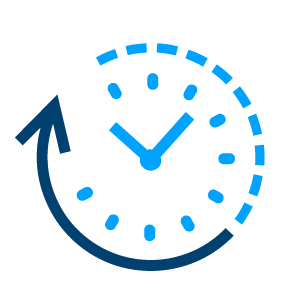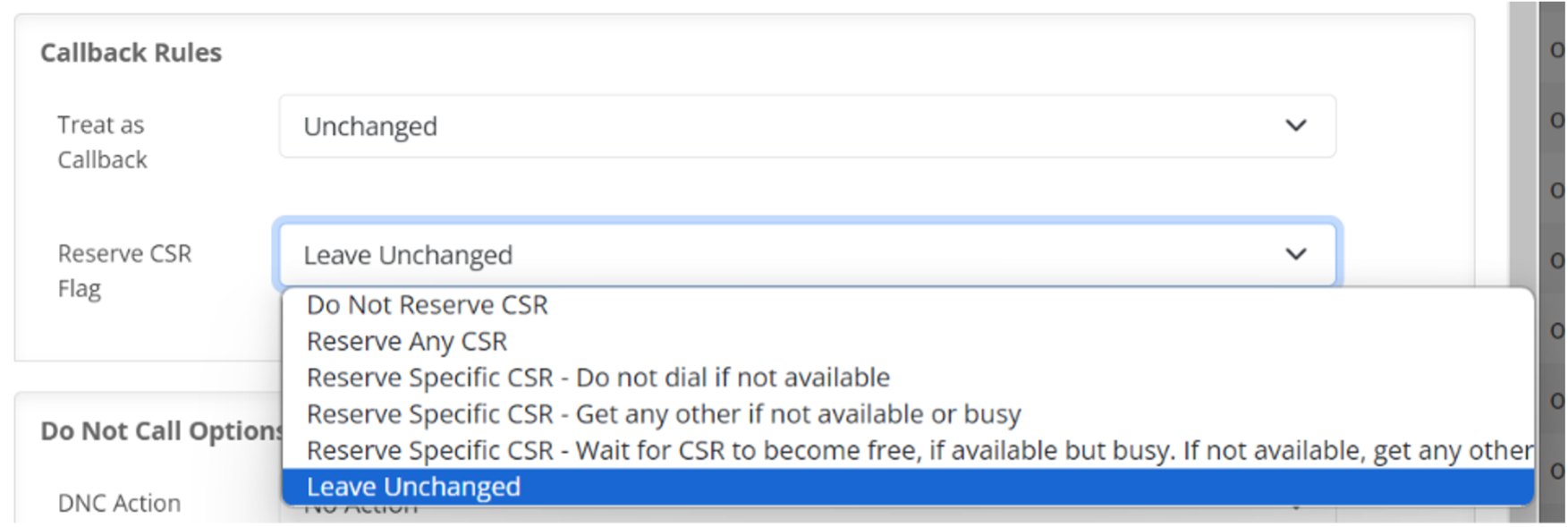Scheduled Callbacks: Maximizing Efficiency and Customer Satisfaction in Contact Center Operations
As an operations manager in a contact center, you’re acutely aware of the delicate balance between operational efficiency and delivering an outstanding customer experience. Your agents are tasked with a complex mix of responding to incoming inquiries, conducting outbound calls, and ensuring timely callbacks. When callbacks are missed or overlooked, it not only impacts the customer experience negatively but also reflects poorly on your operational metrics. It’s essential to regain control and enable your team to consistently meet customer expectations.
Implementing a scheduled callback system transforms how your contact center operates. This technology allows you to honor your commitments by reaching customers precisely at their preferred date and time. It meticulously tracks and manages callbacks, ensuring no customer interaction falls through the cracks. Furthermore, the system can send confirmations to customers, detailing their scheduled callbacks and reinforcing their confidence in your commitment to reconnect.
Embrace the power of scheduled callbacks in your contact center. This approach not only streamlines your operations but also opens avenues to enhance customer experiences, turning routine callbacks into opportunities for exceptional service delivery.
The Problem With Traditional Callbacks
Traditional callback approaches in call centers face several issues in the current customer service landscape:
Inefficiency and Delays: Traditional systems often lack the capability to schedule callbacks at a specific time, leading to inefficiencies such as agents calling back during times when customers are unavailable. This results in repeated attempts, wasting time and resources.
Customer Frustration: Customers today expect quick and responsive service. The delay and unpredictability of traditional callbacks can lead to frustration, especially if they miss the call and have to start the process over again.
Lack of Personalization: Traditional methods don’t always account for the individual preferences and schedules of customers, which is increasingly important for modern consumers who seek personalized experiences.
Operational Challenges: These systems can create logistical challenges for call centers, such as managing peak times and ensuring enough staff are available to handle callbacks efficiently.
Missed Opportunities: Inefficient callback systems can lead to missed opportunities for customer engagement and sales, as customers may lose interest or turn to competitors with better service.
Impact on Agent Productivity: Repeated and unsuccessful callback attempts can be demoralizing for agents and reduce their overall productivity.
Compliance and Security Concerns: Traditional callback methods might not always align with the latest data protection regulations, especially if sensitive information is being exchanged.
Increased Costs: Inefficiencies in the callback process can lead to increased operational costs, including higher labor costs and potential loss of business due to poor customer satisfaction.

In response to these challenges, many call centers are adopting more sophisticated systems that allow for scheduled callbacks, better customer data management, and integration with other communication channels, providing a more efficient, personalized, and customer-friendly experience.
A Better Solution: Scheduled Callbacks
Scheduled callbacks empower your contact center to reconnect with customers at a precise date and time requested by the customer. NGNCloudComm handles the calls at the precise moment and your agents have the customer’s contact information and callback details, so there’s no risk of a missed or forgotten follow-up.
Scheduled callbacks address many of the problems inherent in traditional callback methods in several key ways:
Improved Customer Convenience: By allowing customers to choose a specific date and time for their callback, scheduled callbacks respect the customer’s time and schedule. This reduces the likelihood of missed calls and enhances customer satisfaction.
Increased Efficiency: Scheduled callbacks help streamline the callback process. Agents know exactly when to call, which reduces the time spent on unsuccessful attempts and allows for better management of their workload.
Enhanced Personalization: This approach caters to the modern customer’s expectation for personalized service. It shows that the company values the customer’s time and preferences, thereby improving the overall customer experience.
Reduced Frustration and Improved Satisfaction: Minimizing the back-and-forth of missed calls and voicemails alleviates customer frustration. A well-timed callback can lead to more productive conversations and a higher likelihood of resolving issues quickly.
Optimized Resource Allocation: Knowing the schedule for callbacks in advance allows for better staff planning and resource allocation. This helps in managing peak times more effectively and reduces the strain on resources.
Better First Call Resolution Rates: With scheduled callbacks, agents are better prepared for the call, possibly having accessed and reviewed the customer’s history and issues beforehand, leading to higher first call resolution rates.
Increased Sales and Retention Opportunities: Prompt and efficient callbacks can enhance the customer’s perception of the company, leading to increased sales opportunities and improved customer retention.
Compliance with Regulations: Scheduled callbacks can be designed to comply with data protection and privacy regulations, as they allow for more controlled interactions with the customer.

In summary, scheduled callbacks offer a more customer-centric approach, aligning with the evolving expectations of consumers and addressing the operational inefficiencies of traditional callback systems.
What Are NGNCloudComm’s Scheduled Callbacks?
Scheduled callbacks is a feature that NGNCloudComm offers call center operations where customers can request to be called back at a specific date and time that is convenient for them. This system is designed to enhance the customer experience and improve the efficiency of call center operations. Here’s how it works:
Customer Request
Scheduling
Automated Process
Efficiency and Convenience
Personalization
Benefits of Scheduled Callbacks for Customers
Scheduled callbacks represent a significant advancement in customer service, offering numerous benefits that enhance the overall experience and foster customer loyalty:
Control and Convenience: Customers gain the flexibility to schedule callbacks at times that align with their personal schedules. This capability is especially appreciated by those with busy routines, allowing them to arrange a callback at a more suitable time.
Minimized Wait Times: The ability to schedule a callback eliminates the need for customers to endure long hold times or navigate complex phone menus. This level of service, akin to a concierge, showcases your respect for their time and enhances their experience.
Enhanced Preparedness: Scheduled callbacks give customers the chance to be better prepared for the call. They can gather necessary information or documents beforehand, ensuring a more efficient and effective conversation with the agent.
Lower Call Abandonment: The frustration of lengthy wait times or intricate phone systems often leads to call abandonment. Scheduled callbacks reduce this likelihood, ensuring that customer inquiries are addressed and resolved.
Continuity in Service: Consistency in customer service is key. Scheduled callbacks can facilitate interactions with the same agent for follow-ups or escalations, eliminating the need for customers to repeat their issues or provide background information again.
Scheduled callbacks are particularly valuable in managing high call volumes and improving customer satisfaction by reducing wait times and making interactions more convenient and customer-centric.
Benefits of Scheduled Callbacks for Agents
Scheduled callbacks present a range of advantages for contact center agents, enhancing their productivity and the quality of customer interactions:
Boosted Productivity: Agents benefit from the ability to manage their time more effectively with scheduled callbacks. After arranging a callback, they can move on to assist other customers, significantly reducing idle periods. This efficient time management allows agents to handle more customer queries during their shifts, thus boosting overall productivity.
Enhanced Customer Interactions: Agents find that customers are more receptive and satisfied when they receive calls at their chosen times. This convenience reduces customer frustration associated with long wait times and enhances their experience. Happy customers often translate into more positive and productive interactions, fostering brand loyalty.
Lower Call Abandonment Rates: Scheduled callbacks contribute to reducing call abandonment rates, which can be costly for businesses. Since customers have the flexibility to choose a callback time, they are less inclined to hang up due to prolonged waiting. This customer-centric feature results in more successful call completions and minimizes missed opportunities.
Streamlined Contact Center Operations: Implementing scheduled callbacks makes for a more efficient operation overall. With a decrease in abandoned calls and reduced idle time, contact centers can optimize workforce planning and forecasting. Additionally, the data gathered from scheduled callbacks can be invaluable in refining call routing strategies and improving agent scheduling.
In conclusion, scheduled callbacks offer a symbiotic solution for both agents and customers. For agents, they provide a structured and efficient way to manage calls, leading to more meaningful and personalized customer interactions. For operations managers, they are a strategic tool to enhance productivity, customer satisfaction, and operational efficiency. Adopting scheduled callbacks can significantly transform the dynamics of a contact center, making it a highly beneficial practice.
NGNCloudComm’s Streamlined Callback Process
NGNCloudComm simplifies the callback process, ensuring seamless customer interactions. During the call disposition, agents can easily schedule the callback by specifying the date and time and flagging it as a scheduled callback. Additionally, NGNCloudComm offers the flexibility to automate customer confirmations via email, text, WhatsApp, etc., without requiring agent intervention, streamlining your communication workflow.
Your organization has full control over the callback operations with customizable options:
Flexible Scheduling: Based on your company’s rules, any call disposition can be treated as a scheduled callback, even without direct agent involvement.

Diverse Callback Handling Options:

- Do Not Reserve an Agent: Calls the customer at the designated time without reserving an agent.
- Reserve Any Agent: The system selects a random agent for the callback.
- Reserve Specific Agent – No Dial if Unavailable: Calls are directed to a chosen agent, but not attempted if that agent is unavailable.
- Reserve Specific Agent – Redirect if Busy: Initially targets a specific agent, redirecting to another if the first is busy.
- Reserve Specific Agent – Wait for Availability: Waits for a specific busy agent to become available, or redirects if the agent is unavailable.
- Leave Unchanged: Maintains the existing callback status.
Should a scheduled callback not be attempted, NGNCloudComm’s business rules will notify your campaign, enabling you to take appropriate follow-up actions, like sending a text message to the customer for rescheduling.
This tailored approach ensures that your contact center efficiently manages customer callbacks, enhancing engagement and satisfaction.
Conclusion
Enhancing Customer Experience with Scheduled Callbacks: A Strategic Opportunity for Contact Center Managers
As an Operations Manager in a contact center, you are acutely aware of the critical role customer experience and satisfaction play in the success of your business. Implementing scheduled callbacks is an impactful strategy to enhance customer interactions, ensuring contact at the most convenient times for your clients. This functionality not only empowers your agents to provide a personalized, high-touch experience but also significantly resonates with the expectations of modern consumers.
By adopting this approach, your contact center will gain a reputation for exceptional customer service. This leads to stronger customer loyalty, improved retention rates, and heightened brand advocacy. In today’s competitive landscape, the ability to offer scheduled callbacks sets your center apart, positioning it as an industry leader.
Embrace this opportunity to elevate your contact center operations. Discover how integrating scheduled callbacks can be a game-changer
